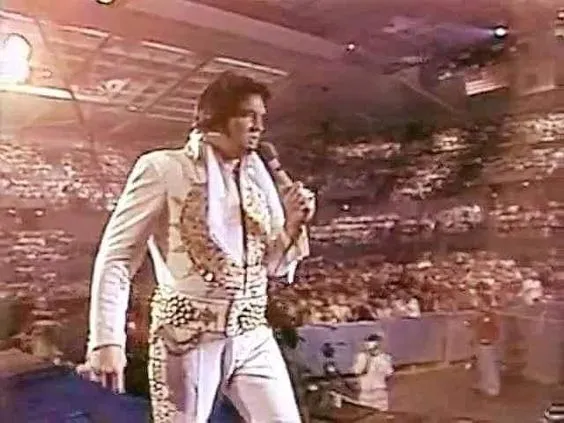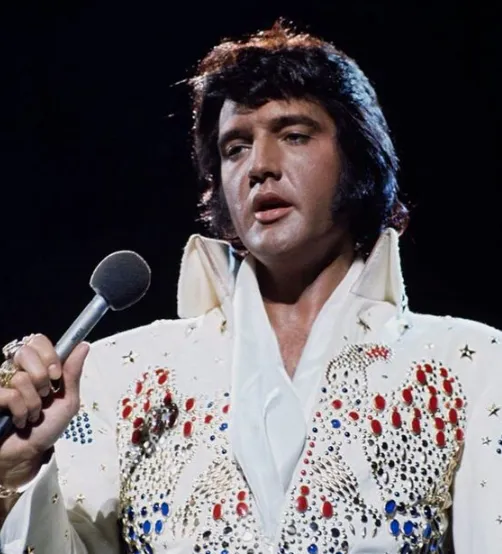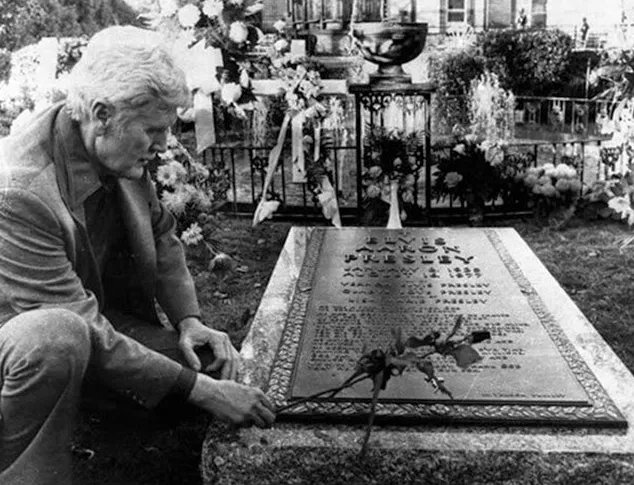About The Song
(Watch the video below)
Elvis Presley, widely recognized as the King of Rock and Roll, left an indelible mark on music and popular culture that continues to resonate to this day. However, despite his iconic status primarily in the realm of music, Presley's impact extended beyond the confines of the recording studio and concert stage. One notable instance of this crossover occurred with the film "Inherit the Wind," where Elvis Presley was considered for a role in the 1960 adaptation.
"Inherit the Wind" is a powerful courtroom drama based on the infamous Scopes Monkey Trial of 1925, where a Tennessee high school teacher was prosecuted for teaching the theory of evolution in violation of state law. The trial became a battleground between science and religion, with its implications reaching far beyond the courtroom. The play, written by Jerome Lawrence and Robert Edwin Lee, was adapted into a film in 1960, directed by Stanley Kramer.
The film boasted a stellar cast, including Spencer Tracy, Fredric March, and Gene Kelly, among others. However, Elvis Presley's name was floated as a potential addition to the ensemble. Presley was at the height of his fame in the late 1950s and early 1960s, having already achieved massive success in the music industry with hits like "Heartbreak Hotel," "Love Me Tender," and "Jailhouse Rock." His popularity had extended to the silver screen with films such as "Love Me Tender" and "Jailhouse Rock," making him a sought-after talent in Hollywood.

The prospect of casting Elvis Presley in "Inherit the Wind" generated significant buzz and speculation among fans and industry insiders alike. Presley's undeniable charisma and on-screen presence seemed well-suited to the role of Bertram Cates, the young schoolteacher at the center of the trial. Cates' character, based on real-life teacher John T. Scopes, was portrayed as a sympathetic figure caught between his desire to educate his students and the conservative forces opposing the teaching of evolution.
However, despite the initial excitement surrounding the possibility of Presley's involvement, the casting ultimately did not come to fruition. The role of Bertram Cates was ultimately played by Dick York, while Presley continued to focus on his music career and other film projects. Nevertheless, the mere consideration of Presley for the role speaks to his status as a cultural icon and his ability to transcend the boundaries of his primary field of expertise.
Had Elvis Presley been cast in "Inherit the Wind," it would have represented a fascinating convergence of two cultural juggernauts: the King of Rock and Roll and a seminal work of American theater. The film's exploration of themes such as freedom of thought, the clash between tradition and progress, and the role of religion in society would have provided a compelling backdrop for Presley to showcase his acting chops beyond the confines of his previous film roles.

Presley's potential involvement in "Inherit the Wind" also raises intriguing questions about the intersection of art, politics, and celebrity in American society. The Scopes Monkey Trial was a pivotal moment in the history of science education and the separation of church and state in the United States, and the film adaptation of the trial served as a commentary on the ongoing tensions between science and religion in American culture.
Presley's own relationship with religion was complex and multifaceted. Despite his image as a rebellious rock star, he had a deep spiritual side and was raised in the Pentecostal tradition. Throughout his life, he grappled with questions of faith and identity, incorporating gospel music into his repertoire and publicly expressing his belief in God. In this context, his potential involvement in a film like "Inherit the Wind," which grappled with issues of faith and reason, would have added an intriguing layer of depth to his artistic legacy.
Ultimately, while Elvis Presley did not appear in "Inherit the Wind," his impact on American culture and entertainment endures. His music continues to inspire and influence artists across genres, and his larger-than-life persona remains a symbol of rebellion, individualism, and the enduring power of rock and roll. And while his foray into acting may not have included a role in a courtroom drama like "Inherit the Wind," his film career left an indelible mark on the history of cinema, cementing his status as one of the most iconic figures of the 20th century.



